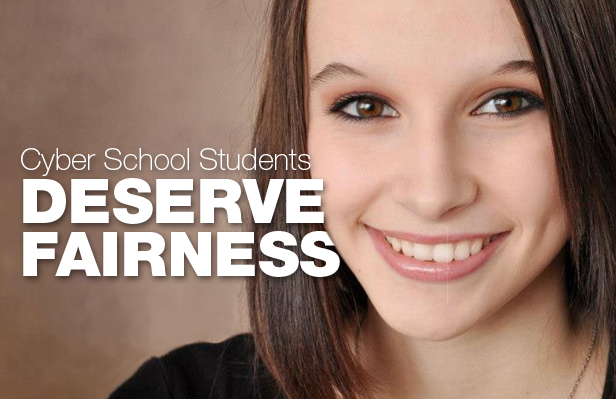Media

Filling in the Gap: Cyber Charter Schools
Last month, the Commonwealth Foundation sat down with cyber charter school leaders Dr. Maurice “Reese” Flurie, Tom Longenecker, and Christine Hakes to discuss school choice. As the CEO, COO, and Senior Business Director, respectively, of Commonwealth Charter Academy (CCA), their leadership is based on years of public and cyber charter educational experience.
When public schools fall short, cyber charter schools fill in the gaps. This is evident by CCA’s enrollment, where many of their students enter in 6th or 9th grade despite previously attending public school. Additionally, around three-quarters of CCA students begin a grade level below their peers, and the school’s special education program comprises 20 percent of students compared to the statewide district average of about 13 percent. Clearly, CCA welcomes bright and struggling students alike to fulfill individual needs.
To CCA’s leaders, school choice boils down to a simple truth: some public schools aren’t the best fit for students, and some students aren’t the best fit for public schools. It isn’t a matter of elevating one school over another, but of looking at the main goal—educating children—and accomplishing that goal by whichever process works best. For some, this means attending a public school, but for the 33,000 students attending cyber charter schools in Pennsylvania, it means finding an alternative.
“I chose to go to a cyber charter school because I had a very difficult time in traditional public school. I was bullied because I struggled with Asperger's Syndrome, which is classified on the autism spectrum. The syndrome made it difficult to interact with my peers.”
Josh Marzak, an incoming sophomore at Millersville University, is a prime example of this reality:
“I chose to go to a cyber charter school because I had a very difficult time in traditional public school. I was bullied because I struggled with Asperger's Syndrome, which is classified on the autism spectrum. The syndrome made it difficult to interact with my peers.”
Despite these difficulties in public school, Josh thrived at a cyber charter school.
“In 6th grade, my mother enrolled me into Pennsylvania Leadership Charter School (PALCS), which was an incredible opportunity. Learning from home, PALCS eliminated the anxiety and bullying I experienced in brick and mortar education but still provided cutting-edge curriculum.”
Josh isn’t the only one who needed an alternative.
Cherise Byler enjoyed public school until she was placed in a disruptive specialized classroom for her Individualized Education Plan (IEP). Faced with racism, bullying, and a poor learning environment, she turned to cyber school for more individualized learning. Looking back, she’s grateful she made the right choice.
Often, students need more opportunities to thrive. For instance, CCA graduate Miranda Sheridan left her public school because it offered only a few advanced courses. CCA, on the other hand, allowed her to graduate with about 30 college credits in 2017, and she now studies biomedical sciences at Liberty University.
“I liked the fact that CCA is more personally geared toward each learner,” Miranda’s mom says. “The teachers have always been very supportive. I feel like they know the kids very well.”
In addition to opportunities, cyber charter education offers refreshing flexibility. Dr. Flurie says flexibility is the number one reason families choose CCA. National figure skating champion Reagan Scott is a testament to that, where CCA was the right vehicle for Reagan to excel academically and athletically. The flexibility of her schoolwork enabled Reagan to train at a higher level and impress the judges.
“I needed more time to skate,” she says. “I would be skating at a much lower level today if not for CCA.”
Reagan’s story is one of many illustrating how important school choice is across Pa. When families are free to choose, parents and students become more engaged in their education. For students seeking safety, opportunity, and flexibility, cyber charter schools are a click away from fulfilling students’ needs.